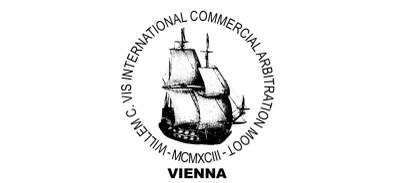Main Content
The Moot

Moot Courts
are simulated trials. The participants prepare a fictitious legal dispute from a lawyer’s perspective and argue the case in front of an arbitral tribunal in form of a role play.
The Willem C. Vis International Commercial Arbitration Moot Court

is an international arbitration Moot which enjoys great popularity and a highly regarded reputation all over the world. Each year, teams from roughly 400 universities coming from around 90 different countries participate. The Moot Court is named after a former Secretary-General of the United Nations Commission on International Trade Law (UNCITRAL) since it incorporates two international, harmonized bodies of rules which play a central role in the Vis Moot Court, i.e. the CISG (United Nations Convention on Contracts for the International Sale of Goods), which is applicable to the merits of the legal dispute, and the UNCITRAL Model Law governing the arbitral proceedings. Hence, the Vis Moot Court reflects a typical private international and procedural law dispute regularly encountered in commerce (see Marburg Law Review 2008, pp. 75).
The Purpose of the Vis Moot Court
is twofold. First, the Moot aims at boosting the study of international commercial law, especially the above-mentioned texts elaborated by UNCITRAL. Second, its goal is to promote the settlement of disputes by means of international commercial arbitration. The Vis Moot Court helps to train to appear before an arbitral tribunal consisting of arbitrators with various legal backgrounds and to practice interpretation of international texts under different legal systems. In addition, an attractive social program during the oral pleadings in Vienna creates the opportunity to form friendships which last well beyond the Moot. A report on the first Marburg Vis Moot Court Team's experience has been published in the Marburg Law Review 2009, pp. 141, a diary report on the second team in Marburg UniJournal 2011, pp. 44 and a newspaper article on the fifth team in the OP of April 22, 2013. The team's Instagram and LinkedIn pages supply up-to-date information on its activities.
Vis Moot Court Schedule
The Problem, which is in essence an extract of the case file, is distributed on the second Friday in October. A memorandum supporting the position of the claimant is due early in December, another prepared for respondent is due in mid-January. The memoranda shall not exceed 35 pages. In the following months the participants prepare for the oral arguments. The team will have the opportunity to practice their oral arguments not only amongst themselves, but also in international law firms, before arbitration practitioners and at pre-moots. Especially pre-moots give the students the opportunity to plead against several other teams. The oral arguments take place in Vienna in the week prior to Easter. Each team pleads at least four times, twice as claimant and twice respondent. Depending on the composition of the panel, the team may be more or less frequently interrupted by the arbitrators’ questions. The highest ranking teams continue pleading in the elimination rounds, culminating in the final argument.